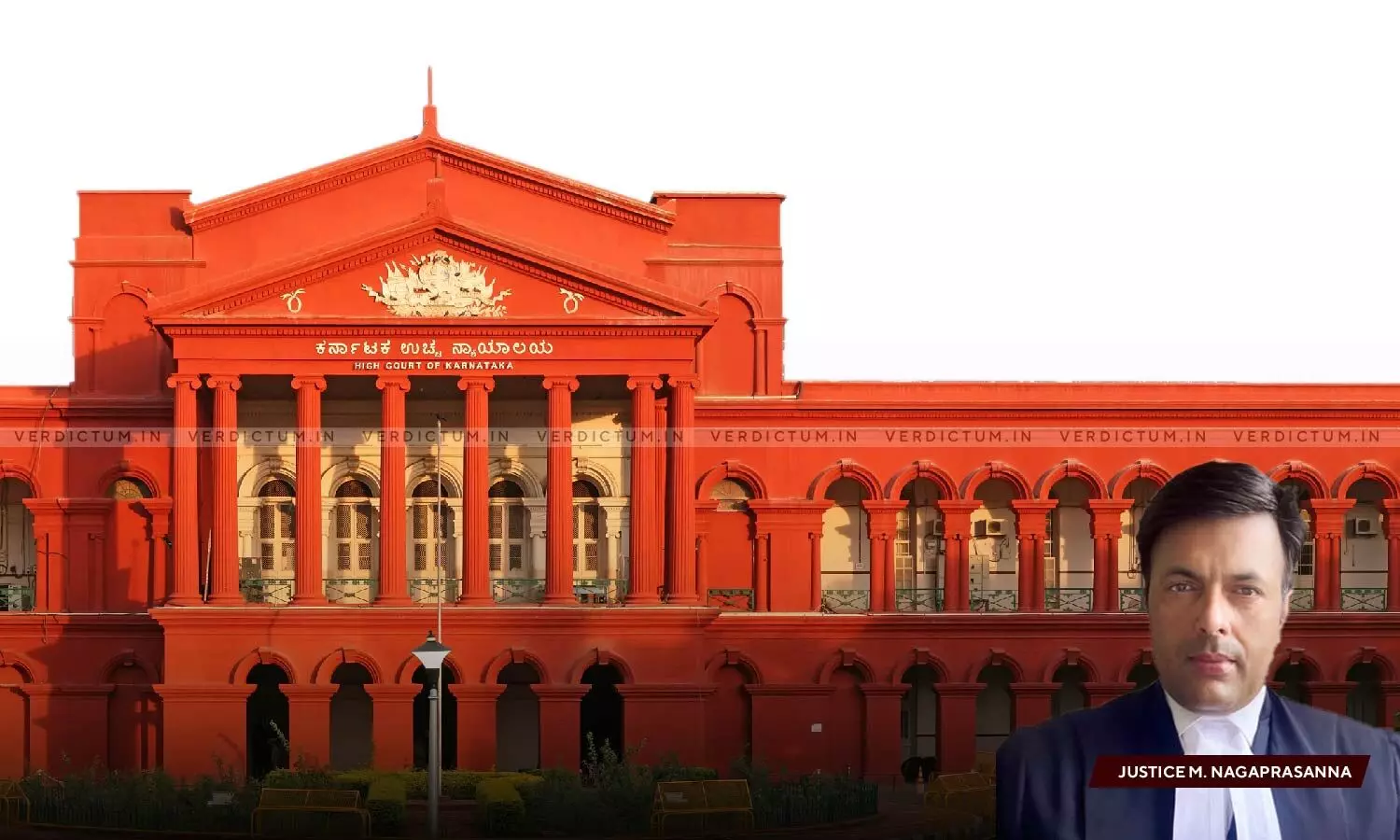
Justice M. Nagaprasanna, Karnataka High Court
Can’t Interfere Merely Because Business Prospect Is Perceived To Be Threatened: Karnataka High Court Dismisses Petition Against Approval For Janaushadhi Kendra Establishment
 |
|The petitioner approached the Karnataka High Court challenging the approval granted in favour of the respondent for the establishment of the Janaushadhi Kendra.
While dismissing a petition filed by a woman who was not granted the final approval for establishing a Janaushadhi Kendra, the Karnataka High Court has observed that it is not for the Court to interfere merely because a business prospect is perceived to be threatened.
The petitioner approached the High Court calling in question a communication through which the claim of the petitioner to cancel the final approval granted in favour of the respondent for the establishment and business of Janaushadhi Kendra under the Pradhan Mantri Bharatiya Janaushadi Kendra was declined.
The Single Bench of Justice M. Nagaprasanna said, “What is projected by the petitioner is purported loss of business by granting another Kendra within a short distance, while it is not the case, as the facts bare consideration hereinabove. But, it would not be for this court to interfere merely because a business prospect is perceived to be threatened rather, the Court must preserve the spirit of a welfare-oriented scheme designed for the many, not the few. There is no arbitrariness that is demonstrable or palpable in the case at hand. The geographical area that is contended to be overlapping, has not overlapped, as the application of the petitioner remained an application. Therefore, in conclusion, I find the petition is devoid of merit.”
Advocate R. Bhadrinath represented the Petitioner while Deputy Solicitor General of India H. Shanthi Bhushan represented the Respondent.
Factual Background
The subject matter of the petition related to the establishment of a Kendra in Kumbra Village, Puttur Taluk, Dakshina Kannada District. Pursuant to the notification issued for the establishment of Kendra, both the petitioner and the first respondent applied for the grant of license/allotment in their respective favor. The petitioner made an application for the opening of the Kendra under the category of women entrepreneurs. The petitioner furnished all the required documents and placed a request for generating a store code by granting final approval. The store code and approval did not come about.
The petitioner then learnt that the first respondent who had also filed an application along with the petitioner was granted approval and store-code. Therefore, the petitioner called in question the action of granting approval in favor of the second respondent, second in line. Since representations went unheeded, the petitioner approached the High Court.
Reasoning
Elucidating upon the scheme, the Bench mentioned that it is in the public domain, that the Kendras became necessary to be established to ensure the availability of quality medicine at low prices, where medicines could be sold at 50% to 90% cheaper rates, compared to market rates. “As observed hereinabove, the Scheme envisioned to redress the imbalance to access medicines by providing quality generic medicines at fair prices”, it added.
One of the arguments raised by the Petitioner was that there cannot be two Kendras within 1.5 km. It was submitted that admittedly, the distance between the approval granted to the petitioner for the purpose of establishment of the Kendra and the subsequent approval granted to the Kendra of the respondent were at a distance of 600 meters. The Bench was of the view that since there was no approval in law finally granted, or a store-code granted to the petitioner, the petitioner couldn’t project that the distance between the two Kendras was less than one kilometer.
The Bench explained that the policy mandates that a distance of one kilometer should be observed between two Kendras while approving a new Kendra where the population of a District is equal or more than 10 lakh. For a place less than 10 lakhs population the distance is 1.5 kilometers. “Be that as it may, the petitioner who did not get the approval finally, cannot contend her rights were crystalized by the approval being taken to its logical conclusion. It was only an in-principle approval subject to final approval. This would not clothe any right in favour of the petitioner to contend that the Kendra that is now approved in favour of the 1st respondent is at a distance of less than one kilometer. It would have been an altogether different circumstance if the petitioner’s Kendra was already in existence and another Kendra in 500 meters or less than one kilometer has emerged. This is not the case of the petitioner even”, the Bench said.
Thus, rejecting the Petition, the Bench held, “No illegality, procedural infirmity or arbitrariness is discernable from the grant of approval to the 1st respondent, to iterate public interest would be ill-served if this Court were to interdict a lawful and beneficial initiative on such slender grounds.”
Cause Title: Smt. Savinaya v. Mrs. Sheela G. Bhat [Case No. WRIT PETITION No.13685 OF 2024 (GM-RES)]
Appearance:
Petitioner: Advocate R. Bhadrinath
Respondent: Deputy Solicitor General of India H. Shanthi Bhushan, Advocate M. Sudhakar Pai
Click here to read/download Order